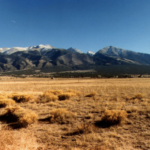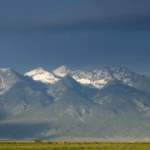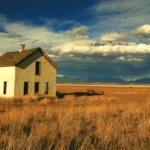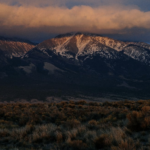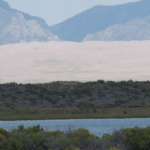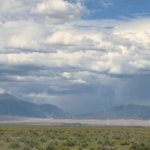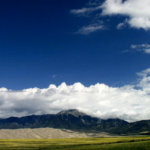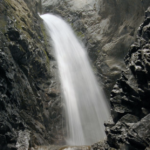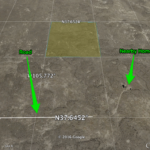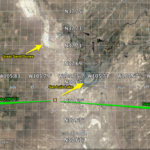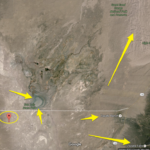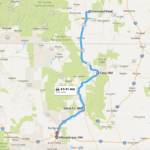This gorgeous 40 acre parcel located in Alamosa County in the heart of the Colorado’s San Luis Valley features 360 degree mountain views, including the Sangre de Christo Range. Only a few minutes drive from the San Luis Reservoir for swimming, fishing and hiking and just a little further to the Great Sand Dunes National Park.
The views in this area and the abundant wildlife make it a wonderful place to live or visit. Add the fact that it is sunny more than 300 days per year, and you have an outdoor paradise.
Build a cabin, park a mobile home or just bring out your RV and camp on your own property, the restrictions are few. And at this price you will be hard pressed to match the value.
All 40 acres can be yours for just $13,997.00. CASH ONLY, priced for quick sale. (no seller financing available on this one). Won’t last long at this price!
Seller Name: Mile High Rural Land
Seller Phone: 866-707-DIRT (3478)
Seller Email: sales@milehighruralland.com
Contact Website or Check Out: https://milehighruralland.com/listings/
About Costilla County and the San Luis Valley
The San Luis Valley
The San Luis Valley, North America’s largest alpine valley, sits at the south-central border of Colorado and New Mexico, beginning just above of Taos, NM and extending north to Poncha Pass, near Villa Grove, CO. Highways 160 (east-west) and 285 (north-south) are the region’s primary transportation veins.
Zapata is located at the eastern edge of the valley, at the junction of Highway 150 and Lane 6 North — about 15 miles east of the town of Mosca and five miles south of Great Sand Dunes National Park and Preserve.
The San Luis Valley sits at about 7,500 feet above sea level, in a semi-arid region ringed on all sides by mountains. The climate is dry and temperate for three seasons, with sunny, warm, pleasant summers and cool, breezy springs and falls. Winters can be harsh, with daytime temperatures averaging in the 20s and often dipping well below zero at night. Snowfall is common from October through April and accumulates in the foothills and mountains (including Zapata), usually melting off quickly in the lower elevations.
Great Sand Dunes National Park and Preserve
Just north of Zapata is one of North America’s largest dune fields, and one of the most biologically diverse park in the United States. Miles of drifting, changing, ethereal dunes stretch out in every direction, and soar as high as 700 feet above visitors. In the lush landscape surrounding the dunes, mule deer, elk, black bears, mountain lions, coyotes, eagles, hawks and other wildlife share the park with more than 300,000 visitors each year. Many of these animals share a community back yard with Zapata residents.
More information about the park
Surrounding area
Mosca and Hooper
These two small, rural towns on State Highway 17 serve as the gateway to Zapata and the Great Sand Dunes for travelers coming from points north. Mosca is home to the Colorado Gator Park (you read that right!) and the Mosca Pit Stop, a convenience store, gas station and popular, local watering hole. Just north of Mosca near Hooper is the famed UFO Watchtower, a collection of other-worldly memoribilia and a raised platform for prime outer space viewing. Hooper is also home to the Hooper Pool – a deceptively simple name for a divine, geothermal swimming experience.
Crestone
Called the Hamlet of the San Luis Valley, Crestone is a small but active arts community on the north side of the Great Sand Dunes National Park and Preserve. Holistic living, eco-building, solar power and other modern, back-to-the-land values are popular here, as is a connected community devoted to artisan culture.
Blanca, Fort Garland and San Luis
This trio of small towns on the southeastern edge of the San Luis Valley have a rich Hispanic history visible in their architecture and community events. Blanca’s two small grocers are a popular place for Zapata residents to stop for the basics, and the community center along US Route 160 between Blanca and Fort Garland offers residents an array of fitness and educational opportunities at low cost.
San Luis, just a few miles from the New Mexico border, is seeing a resurgence in its arts and cultural community. Between these three towns there’s no shortage of hometown-style diners – both Mexican and American – to choose from.
Alamosa and Monte Vista
The business and cultural center of the San Luis Valley, Alamosa is home to just under 10,000 people, dozens of dining options, several hotels, retail stores, grocery stores, parks, galleries, the fabled Rio Grande and its namesake, the Rio Grande Scenic Railroad.
Despite being just half that size, Alamosa’s sister city, Monte Vista, is also bustling, with a charming, active downtown, a rural livestock events center and a wildlife refuge that’s home to some 25,000 migrating Sandhill Cranes each spring and fall.
Other unique facts and fables about the area
The San Luis Valley covers an area of about 8,000 miles, about the size of the state of Connecticut, but its total population is less than 50,000.
The valley’s economic engines are tourism and agriculture. Potatoes and barley are the main crop.
There are more than 500 known artists living in the San Luis Valley today.
Native American legend holds that the San Luis Valley is the site of “Sipapu,” or place of emergence. They believe their ancestors gathered to this special place to be led underground and await the cleansing of the earth and the coming of the new world. It’s believed that the exact spot of Sipapu is near the San Luis Lakes, not far from Zapata.
Eighty acres of fields outside Mosca are now home to the largest solar installation of its kind in North America.
The San Luis Valley enjoys more than 300 days of sunshine each year.
About the Seller: Mile High Rural Land was formed to acquire and resell undeveloped raw land at deep discounts, enabling our investors to capitalize on multiple exit strategies, cash, terms or hold for capital gain. The properties we provide to our buyers are generally purchased for investment, to enjoy with family, build a cabin or second home, to use for camping, ride motorcycles, hunt, etc.
Mile High Rural Land is officially Land Academy certified.

